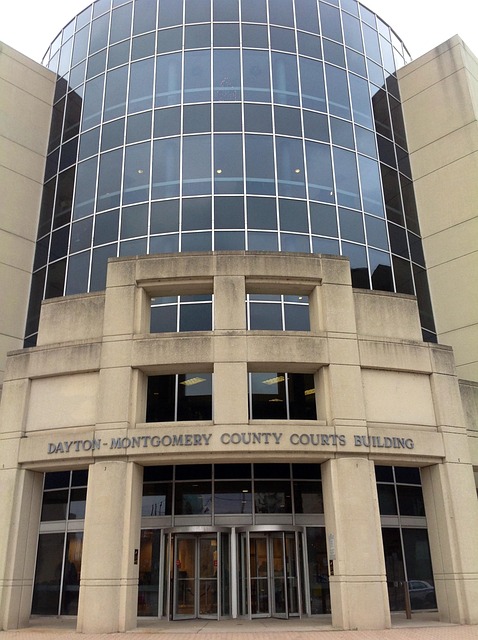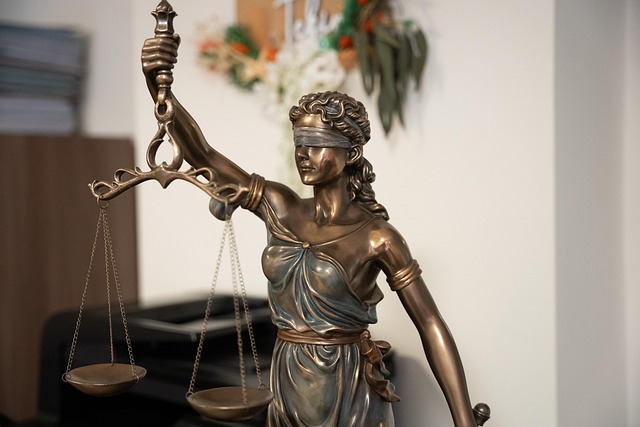Prosecutor Strategies in Plea Bargaining Process play a crucial role in antitrust cases, balancing justice and efficient case resolution. Through negotiated pleas, prosecutors offer reduced charges or sentences to encourage guilty pleas from defendants facing resource-intensive trials. This approach streamlines evidence gathering, promotes transparency, and fosters fair market competition by mitigating penalties for cooperative businesses. However, it raises concerns about deterrence and fairness when charges are dismissed completely. Skilled defense strategies navigate these complexities, balancing rights protection with favorable outcomes in a delicate equilibrium.
“Uncover the intricate world of antitrust violation cases and the pivotal role played by prosecutor strategies in the plea bargaining process. This article navigates the complex landscape of antitrust laws, their enforcement, and the tactics employed during negotiations. From identifying common pleading strategies to understanding the defendant’s rights, we delve into the delicate balance between resolving legal disputes and ensuring fair market competition. Explore how prosecutors’ decisions shape antitrust litigation outcomes.”
- Understanding Antitrust Laws and Their Purpose
- Identifying Common Plea Bargaining Tactics
- Prosecutor's Role in Negotiating Agreements
- Defendant's Rights During Plea Bargaining
- Impact of Plea Bargains on Antitrust Litigation
Understanding Antitrust Laws and Their Purpose

Antitrust laws are designed to promote fair competition and prevent businesses from engaging in practices that restrict market competition. These laws aim to ensure that companies operate within ethical boundaries, fostering a level playing field for all participants in the marketplace. The primary purpose is to protect consumers by maintaining low prices, encouraging innovation, and ensuring diverse product choices. Understanding these regulations is crucial, especially for businesses, as they must adhere to them to avoid legal repercussions.
In the event of an alleged antitrust violation, prosecutors employ various strategies during the plea bargaining process. They may offer incentives, such as reduced penalties or non-prosecution agreements, to encourage companies or individuals to cooperate and admit guilt. This approach allows prosecutors to gather evidence more efficiently and resolve cases quickly. For his clients, across the country, effective representation during these negotiations is vital to mitigate potential consequences, ensuring that respective business interests are protected while adhering to legal obligations.
Identifying Common Plea Bargaining Tactics

In the plea bargaining process, both prosecutors and defendants employ various strategies to reach mutually agreeable outcomes. Prosecutors, aiming to secure convictions, may offer reduced charges or lighter sentences in exchange for a guilty plea. This tactic, often referred to as “negotiated pleas,” allows them to manage their caseload efficiently while ensuring some level of justice is served. By encouraging defendants to plead guilty, prosecutors can avoid the time and resources required for trials, which is especially beneficial in complex antitrust violation cases where proving guilt beyond a reasonable doubt can be challenging.
Effective prosecutor strategies in plea bargaining often involve presenting compelling evidence to persuade defendants of the potential outcomes if they go to trial. This includes demonstrating the strength of the prosecution’s case, the credibility of witnesses, and the possible consequences, including additional legal costs and adverse publicity. For his clients, avoiding indictment or reducing charges can be a priority, leading them to consider plea bargains as a means to protect their respective businesses from severe legal repercussions.
Prosecutor's Role in Negotiating Agreements

In antitrust violation cases, prosecutors play a pivotal role in negotiating agreements with corporate and individual clients throughout all stages of the investigative and enforcement process. These strategies are crucial in achieving compliance, mitigating penalties, and ensuring fair market practices. Prosecutor strategies in plea bargaining often involve encouraging cooperation, where defendants provide information or testimony against other conspirators, leading to reduced charges or sentences.
An unprecedented track record of successful negotiations showcases the prosecutor’s ability to balance justice with practical outcomes. This approach not only holds wrongdoers accountable but also fosters a culture of transparency and competition, ultimately strengthening market integrity. By employing these tactics, prosecutors can navigate complex cases effectively, considering both legal merits and the broader implications for business conduct.
Defendant's Rights During Plea Bargaining

During plea bargaining, defendants face a delicate balance between protecting their rights and securing favorable outcomes. While the prosecutor holds significant leverage, defendants are still entitled to legal counsel and the right to enter a plea. The process involves extensive negotiations where both parties aim to reach an agreement that satisfies their interests. Prosecutors often employ strategic approaches, considering factors like the strength of the case, potential sentence length, and the defendant’s willingness to cooperate in exchange for reduced charges or a lighter punishment.
In cases of white-collar and economic crimes, defendants might opt for plea bargains to avoid lengthy jury trials and the risk of more severe sentences. However, it’s crucial for defendants to understand their options and rights fully. Plea bargaining can result in a complete dismissal of all charges, but this is not guaranteed. Defendants must be prepared to accept consequences while also exploring opportunities for mitigating their legal issues through cooperative negotiations with prosecutors.
Impact of Plea Bargains on Antitrust Litigation

The plea bargaining process plays a significant role in antitrust litigation, offering both advantages and challenges for both prosecutors and defendants. Prosecutor strategies in this process aim to achieve resolutions that balance the need for accountability with the goal of preserving valuable resources. By negotiating plea agreements, prosecutors can secure guilty pleas from individuals or entities involved in antitrust violations, often leading to reduced sentences or charges in exchange for cooperation and information disclosure. This strategy not only streamlines the litigation process but also provides insights into the scope and extent of illegal conduct, aiding future enforcement efforts.
However, the impact of plea bargains on antitrust cases is complex. While they can expedite legal procedures and potentially reduce penalties, they might also result in a complete dismissal of all charges for the defendants. This outcome, while appealing to businesses facing white-collar and economic crimes accusations, raises concerns about deterrence and ensuring fairness in the market. As such, striking a balance between encouraging cooperation through plea bargaining and maintaining the integrity of antitrust laws remains a critical aspect of general criminal defense strategies in these cases.
The article has explored critical aspects of antitrust violation cases, from understanding the purpose of antitrust laws to analyzing the impact of plea bargains. Prosecutor strategies in the plea bargaining process play a pivotal role in shaping outcomes, balancing the need for corporate accountability with efficient litigation. By employing tactics that favor both justice and economic stability, prosecutors contribute to a fair and effective legal system. Moving forward, staying informed about these dynamics is essential for all stakeholders involved in antitrust litigation.






